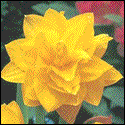
FREE Garden Journal!!
Join "Garden Notes" and plan for Harvest Success as you track and record your gardening progress. Your Free Personal Garden Journal has pages for jotting down notes on the seeds you start, your new plantings, when you fertilized, and even a graph to plot a new garden.
How To's | Technique | Practical Advice | Children | Internet Gardening | Vermicomposting | Pest Management


Why are you still bagging your grass?
After all, lawn maintenance is work...
And bagging your lawn clippings is probably the most time-consuming part of the job.
Now, consider not bagging your grass... Gone is the hassle of stopping every 10 minutes to empty the mower bag, raking and wrestling with expensive trash bags. Instead of causing trouble, your clippings can remain on your lawn, working their way back into the lawn to enrich the soil, keep the temperature cooler, and save on watering.
According to Turf Experts, ... Grass Clippings:
- reduce water evaporation from the lawn
- reduce lawn wear by creating a cushioning layer
- facilitate better growth by keeping the soil temperature cooler
There is one other important reason for leaving your clippings on the lawn. During the summer months, grass clippings can account for a whopping 16 percent of residential solid waste. With waste management costs rising and an environment to protect, it just makes good organic sense.
You may choose to collect your clippings every third time you mow, or every other time. Your compost pile will need grass too. Regardless, you are creating a savings for you and the environment.
Lawn Maintenance Tips:
- Don't let your grass grow too long before mowing. The clippings should be no more than an inch long in order to fall onto the soil.
- Use a sharp mower blade (a mulching mower if you have one). The sharper the blade, the finer the clippings, the faster they decompose.
- Avoid overfertilizing your lawn. Too dense a growth will not allow your clippings to reach the soil to decompose.
- Remove excessive thatch before leaving your clippings on the lawn. Although one-half inch of thatch is ideal, a thick layer will keep clippings from reaching the soil.
- Always mow your lawn when it is dry so clippings will be able to filter down to the soil without clumping.
More lawn maintenance tips....


